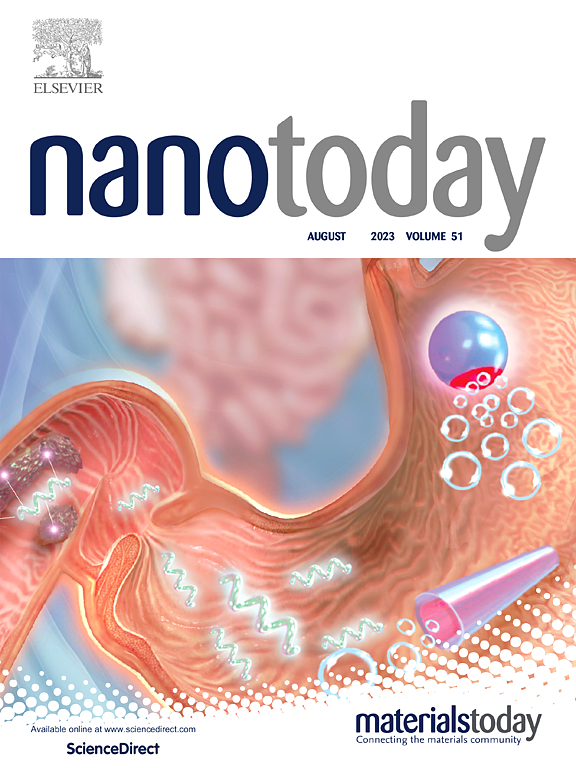Tuning planar and selective Zn evolution promoted by densely grown covalent organic framework towards high performance zinc batteries
IF 10.9
1区 材料科学
Q1 CHEMISTRY, MULTIDISCIPLINARY
引用次数: 0
Abstract
Zn dendrites generation and excess electrolyte consumption prevent the practical application of aqueous Zn batteries (AZBs). Herein, zincophilic separators (glass fibers@ covalent organic framework, GF@COF) are synthesized via a facile one-step solvothermal method based on Schiff base reaction. Specifically, the separator surface is densely decorated by in situ grown covalent organic framework (COF). Zincophilic N and O containing groups in COF exhibit excellent binding capability with Zn ions, driving homogenous Zn distribution and boosting Zn-ion flux. COF can promote shielding of (100) and (101) plane of Zn metal and directional exposure of (002) plane, steering selective and planar Zn deposition along (002) plane. The mechanism of achieving non-dendrite growth and reduced electrolyte loss has been confirmed by in situ XRD, in situ FT-IR and theoretical calculation. Electrochemical performances of ultrastable rate capability of 4500 h at ambient condition and high reversible capacity of 78.6 mAh g−1 (capacity retention of 94 %) even after 2000 cycles at a large current of 5 A g−1 for MnO2 based full cell are observed, which are substantially superior than previous literature.
密集生长的共价有机骨架促进锌的平面调谐和选择性演化,迈向高性能锌电池
锌枝晶的产生和电解液的过量消耗阻碍了水锌电池的实际应用。本文基于希夫碱反应,通过简单的一步溶剂热法合成了亲锌分离器(玻璃纤维@共价有机骨架,GF@COF)。具体来说,隔膜表面被原位生长的共价有机框架(COF)密集装饰。COF中亲锌的N和O基团与Zn离子具有良好的结合能力,促进Zn的均匀分布,提高Zn离子的通量。COF可以促进金属锌(100)、(101)面的屏蔽和(002)面的定向暴露,引导锌沿(002)面的选择性和平面沉积。通过原位XRD、原位FT-IR和理论计算,证实了其实现非枝晶生长和降低电解质损失的机理。在5 a g−1的大电流下,经过2000次循环,MnO2基全电池的超稳定倍率容量达到4500 h,可逆容量达到78.6 mAh g−1(容量保持率为94% %),其电化学性能明显优于以往文献。
本文章由计算机程序翻译,如有差异,请以英文原文为准。
求助全文
约1分钟内获得全文
求助全文
来源期刊

Nano Today
工程技术-材料科学:综合
CiteScore
21.50
自引率
3.40%
发文量
305
审稿时长
40 days
期刊介绍:
Nano Today is a journal dedicated to publishing influential and innovative work in the field of nanoscience and technology. It covers a wide range of subject areas including biomaterials, materials chemistry, materials science, chemistry, bioengineering, biochemistry, genetics and molecular biology, engineering, and nanotechnology. The journal considers articles that inform readers about the latest research, breakthroughs, and topical issues in these fields. It provides comprehensive coverage through a mixture of peer-reviewed articles, research news, and information on key developments. Nano Today is abstracted and indexed in Science Citation Index, Ei Compendex, Embase, Scopus, and INSPEC.
 求助内容:
求助内容: 应助结果提醒方式:
应助结果提醒方式:


